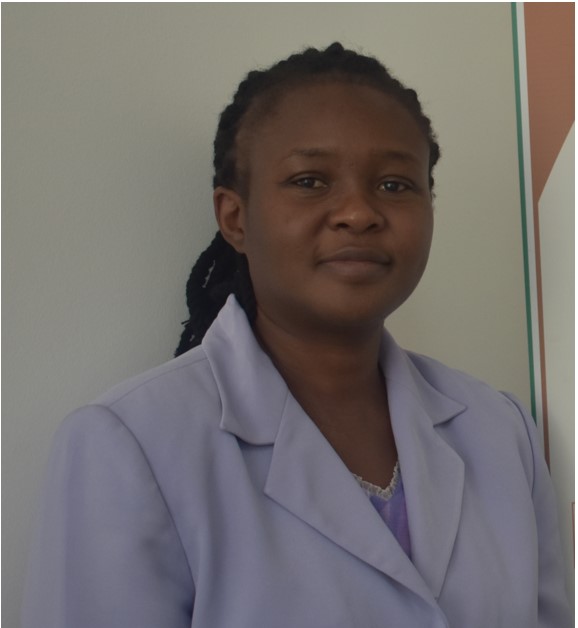
Aanyu Margaret
Country (Nationality)
Uganda
Grantee Title
Nile tilapia that is fast growing and resilient to elevated water temperature
Grantee Description
Type of scientist: Aquaculturist
Host Organisation & country: National Agricultural Research Organisation (NARO), Uganda
Grantee Description
Dr Aanyu Margaret is a Principal Research Officer at the National Fisheries Resources Research Institute that falls under the National Agricultural Research Organization (NARO) in Uganda. Her duty station is the Aquaculture Research and Development Center. She obtained her Ph.D. in Aquaculture Nutrition in 2017 from the University of Stirling in United Kingdom. Her doctoral work focused on investigating effects of phytogenic compounds on the growth and nutritional physiology of juvenile Nile tilapia. She applied nutrigenomics to determine dietary phytogenic compounds and their proportions with growth enhancing effects in the diet of Nile tilapia juveniles.
Dr Aanyu is enthusiastic to embrace advanced molecular techniques and nutrigenomics to develop Nile tilapia strains that are fast growing and adapted to elevated temperatures, as well develop their allied feeds and feeding regimes respectively. Two PhDs and four MSc students will work on the different components of the project. Ultimately, the project is expected to contribute to increased and sustainable aquaculture, food security, job creation and improved lives.
Project: Development of an ex-vivo transmission blocking assay for clinical isolates of matured Plasmodium falciparum gametocytes through membrane feeding assays
In Uganda, aquaculture is challenged by high feed costs, fluctuating feed quality, fingerlings of poor genetic quality, inadequate skilled human resource; and recently, rising temperatures predicted to increase beyond optimum limits for optimal growth, development, survival and reproductive success of Nile tilapia. Breeding for fast growing-temperature resilient Nile tilapia adaptable to locally produced compounded feeds is the novelty of this project. Fast growing and temperature tolerant Nile tilapia will reduce the production cycle and feeding costs, and sustain tilapia production under rising water temperatures. This project will apply nutritional genomics (nutrigenomics) to develop novel fish feeds customized for maximizing growth and health of the strain of Nile tilapia bred for tolerance to rising temperatures. Nutrigenomics will explore the interaction between fish genotype and nutrition to influence fish growth and health. The project will also integrate circular economy and nutrigenomics to develop a feeding regime that supports optimal fish growth and health while improving natural food production and waste removal in pond ecosystems. Farmer-participatory-research approach will be used during fish growth experiments conducted in ponds to enable farmers of all gender groups to learn about the fast growing temperature-resilient tilapia strain and it's feeding regime, and promote it's adoption. The results will also be presented in fact sheets, published in the media, distributed to institutional libraries, published in reviewed journals and conference presentations. The project goal is to contribute to increased and sustainable aquaculture, food security, environmental protection and inclusive aquaculture growth through use of low-cost circular economy-based fish feeding regimes.
